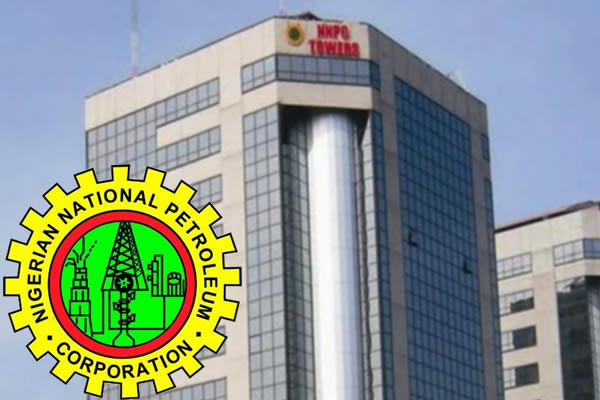The Nigerian National Petroleum Corporation (NNPC) has violated its own guidelines, reporting production shut-ins as losses. The violation is contained in the Corporation’s latest monthly report for January, adding also, that six million barrels of oil production had been deferred following the shutdowns of the export terminals between November and December 2021.
The shut-ins termed losses by NNPC had led to Nigeria’s inability to export over 6 million barrels of crude oil, according to NNPC.
In the past, the Nigerian National Petroleum Corporation had severally admonished reporters to stop reporting shut-ins as losses, however, the Corporation appears to have also fallen foul of same misrepresentation it had flagged.
For instance, while detailing some of its key challenges in the January 2021 report, the Corporation disclosed that 10 crude oil terminals were shut down within two months as a result of either leaks, fire, or for maintenance purposes. The January 2021 report went ahead to tag the inability to export crude through those channels as “loss” instead of shut-ins.
In the past the Corporation had admonished journalists not to report crude oil shut-in as a loss because when such production comes back on stream, the same would be exported and revenue obtained.
The Corporation had put the supposed loss at the export terminals (Batan flow station at Forcados, Opuama flow stations at Trans Escravos pipeline, Abo terminal, Agbami terminal, Brass and Erha terminals, Ugo Ocha terminal at Odidi flow station, Jone Creek FS, Yoho terminal, Usan and Ima terminal, Qua Iboe terminal, Okono and Escravos terminal, and Escravos Dubri terminal) at over 6 million barrels within the said months.
Nigeria has 26 export terminals scattered across the country with 10 located in the Western zone, 11 in the Eastern zone, and 5 in the Lagos zone.
A breakdown of the “losses” as reported by the NNPC, showed that the Batan flow station at Forcados terminal was shut down on the 18th of November 2020, and for 31 days in December due to protest by the community over outstanding payments. Also, the Opuama flow stations were shut down due to reported leaks on 20’’ Trans Escravos Pipeline on December 1. Cumulative “loss “ over 31days in December was 359,200bbls.
At the Abo terminal, production shut down for maintenance took place on the 7th of December 2020 for 13 days. Another shutdown occurred on December 20 for 6 days. Cumulative “loss” for the period was put at 360,000bbls.
Production curtailed for flare management for GTC no.3 first stage discharge cooler repairs and planned maintenance at the Agbami terminal on 24th and 11th November respectively resulted in an aggregate “loss” of 294,414bbls.
Brent was sold for $42.69 per barrel last November and $49.99 per barrel in December.
At the Brass and Erha terminals, Addax shut-in production on 11th, 12th, and 18th December. While production shut-in occurred at Erha due to uncharged fire water main ring failed coupling, power outage on 25th December caused a shut-in of 53.7kbd.
The Ugo Ocha terminal at Odidi flow station was shut down on 18th November, while Jones Creek FS was shut down on19th of same month due to protest by the community over outstanding payments. Cumulative “loss” of production within the period was 1,073,000bbls.
Shut down for flare management on 23rd December for 9 days, the Yoho terminal recorded a “loss” of 225,000bbls.
Again, the Usan and Ima terminal annual planned maintenance had shutdown activity from 21st of November for 12 days in December with an aggregate “loss” of 313,579 bbls.
At Qua Iboe terminal, production shutdown due to fire incident occurred on 12th December with a cumulative “loss” of production of 3, 440bbls within the period.
A “loss” of 0.9kbd was recorded at the Okono and Escravos terminal as production and wells shut-in took place on 11th through 22nd of November and 22 days in December due to suspected leaks on Mystras –Okpoho subsea pipeline. Escravos Dubri was also shut down for maintenance from 1st of August, and 31days in December.
Nigeria’s crude oil production and revenue have been greatly affected by production cuts initiated at the instance of the Organization of the Exporting Countries, OPEC.
While the NNPC says the country is capable of producing three million barrels per day, OPEC cuts restrict the West African country to an output of 1.5mbd.
Oil price that crashed to about $10pb during the coronavirus pandemic has since climbed above $70 per barrel as of Wednesday. International Brent was sold at $70.26 per barrel at 10:35 AM Nigerian time on Thursday.



